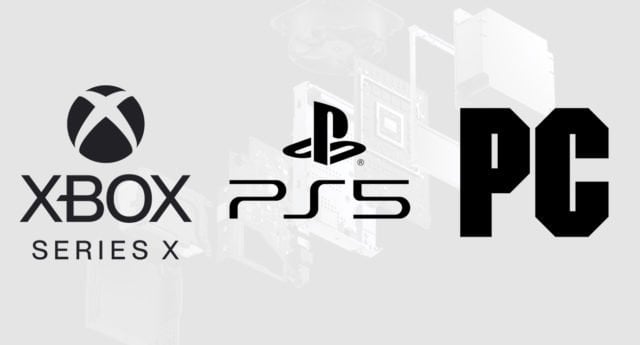KyoZz
Tag, you're it.
The PlayStation 5 has now joined the Xbox Series X in being officially launched, and the two current-gen consoles have united with a superfast Sabrent Rocket NVMe M.2 PCIe 4.0 1 TB SSD in a game load time comparison against a lowly PC hard drive.
The real celebration here involves saying farewell to last-generation load times.

New PlayStation 5 owners should make sure they have downloaded the day one patch for the current-gen console because there are reports it will deliver a speed boost for loading backwards compatible games. While a lot of recent focus in regard to game load times has been between the PS5 and Xbox Series X, or between one of the consoles and a cutting-edge PCIe 4.0 SSD such as the Sabrent Rocket model, a newly posted YouTube video wants to put the spotlight on the difference between "next gen" (now officially "current gen") and last-generation load times.
For the comparison, a 7200-rpm SATA III HDD from Seagate's Barracuda range has been selected, so it's not even one of the slowest of its kind. The desktop PC system used in the comparison featured powerful key parts such as an AMD Ryzen 7 3700X CPU and Nvidia GeForce RTX 2080 Ti GPU. The mechanical data storage device has been compared against the PS5's SSD, the Xbox Series X's storage solution, and a 1 TB Sabrent Rocket PCIe 4.0 SSD. The results are exhilarating:


While there is some back and forth competition between the PS5 and Xbox Series X, with the Sabrent Rocket SSD also performing particularly well against the consoles, the real takeaway here is just how far behind the mechanical hard drive is in comparison. The console SSDs and the PC SSD are generally two to four times faster, with The Witcher 3: Wild Hunt comparison perfectly demonstrating what gamers can expect if they own a PS5, Xbox Series X, or fast PCIe 4.0 SSD: A load time reduction from over 20 seconds to just above five seconds.
Cut the sound:
The real celebration here involves saying farewell to last-generation load times.

New PlayStation 5 owners should make sure they have downloaded the day one patch for the current-gen console because there are reports it will deliver a speed boost for loading backwards compatible games. While a lot of recent focus in regard to game load times has been between the PS5 and Xbox Series X, or between one of the consoles and a cutting-edge PCIe 4.0 SSD such as the Sabrent Rocket model, a newly posted YouTube video wants to put the spotlight on the difference between "next gen" (now officially "current gen") and last-generation load times.
For the comparison, a 7200-rpm SATA III HDD from Seagate's Barracuda range has been selected, so it's not even one of the slowest of its kind. The desktop PC system used in the comparison featured powerful key parts such as an AMD Ryzen 7 3700X CPU and Nvidia GeForce RTX 2080 Ti GPU. The mechanical data storage device has been compared against the PS5's SSD, the Xbox Series X's storage solution, and a 1 TB Sabrent Rocket PCIe 4.0 SSD. The results are exhilarating:


While there is some back and forth competition between the PS5 and Xbox Series X, with the Sabrent Rocket SSD also performing particularly well against the consoles, the real takeaway here is just how far behind the mechanical hard drive is in comparison. The console SSDs and the PC SSD are generally two to four times faster, with The Witcher 3: Wild Hunt comparison perfectly demonstrating what gamers can expect if they own a PS5, Xbox Series X, or fast PCIe 4.0 SSD: A load time reduction from over 20 seconds to just above five seconds.
Cut the sound:
